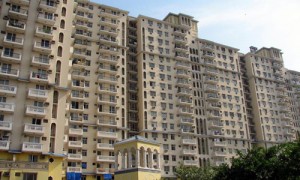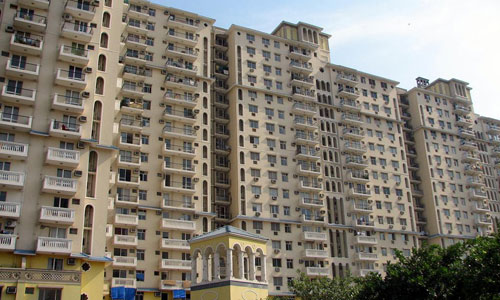By: Ravi Sinha
Track2Realty Exclusive
 The Indian real estate market has matured to the extent that it is seen as the best investment instrument, leaving behind gold and other traditional investment options. However, in the absence of any formal investment education there is a general perception that commercial property is the best bet for investment. This perception also leads to a demand-supply mismatch because as against the housing shortage realtors get carried by prospects that contribute to asset appreciation over a period of time. Residential for needy ones and commercial for the greedy ones seem to be mantra where realtors with deep pockets prefer a commercial property.
The Indian real estate market has matured to the extent that it is seen as the best investment instrument, leaving behind gold and other traditional investment options. However, in the absence of any formal investment education there is a general perception that commercial property is the best bet for investment. This perception also leads to a demand-supply mismatch because as against the housing shortage realtors get carried by prospects that contribute to asset appreciation over a period of time. Residential for needy ones and commercial for the greedy ones seem to be mantra where realtors with deep pockets prefer a commercial property.
What, after all, drives a realty market—pure market demand or future prospect of appreciation? Market in any given city demands more houses but prospects of future appreciation tend to lead towards commercial projects. It is here that the pulse of the market seems to be misleading as residential realty comprises of 70-80 per cent of the market with commercial only 10-15 per cent and 5 per cent realty projects getting into other usages like SEZs etc. However, in the last one decade developers with deep pockets seem to have defied this conventional wisdom and forayed more into commercial projects. Even the investors with a longer time horizon have opted to put their money into commercial projects.
Does it imply that the demand supply equation is no longer the main criteria for any market movement and real-estate projects are being launched on the basis of developers’ balance sheets alone? DLF which has been a market leader in establishing “walk to work” concept believes in the philosophy of interdependence of residential and commercial property. DLF spokesperson Sanjey Roy says there is no conflict of interest as far as developing a housing, retail, office or recreation centre is concerned.
“It is an established fact that there is an acute shortage of housing units in the country. But having said this I fail to see any conflict of interest between residential and commercial property since both are necessities for the urban living. As far as returns on investment is concerned, that depends on the business model of the developer as even among the commercial properties, there can be either sale model or lease model. DLF has an extremely successful lease model and is the largest office space provider in the country. Both these models have their own business strategy. For instance, the lease model that is mostly applicable in the office space is also dependent on the growth of international economy,” he says.
Pankaj Bajaj, Managing Director of Eldeco Group agrees that residential realty market is driven by volume, value and market; whereas commercial property attracts to those who are looking for high rental returns. “Returns on investment have to be analysed in terms of rental appreciation versus capital appreciation. While it is true that rental returns are more in commercial property, it attracts to investors who are investing for rental returns and looking for future appreciation. Whereas in residential property there is an emotional attachment and long-term financial security involved. A premium is paid over sense of ownership of house, which is not the case with commercial property,” he says.
While commercial property in general offers more rental returns; it also fluctuates more than residential property. However, the reasons for fluctuation of commercial property can be very different to the reasons of fluctuation for the residential property. Does it mean that commercial property is meant for developers with deep pockets alone?
Babulal Varma, Managing Director, Omkar Realtors & Developers doesn’t think so. He believes deep pockets can never be a consideration to opt for a commercial property development by a realtor. The primary consideration to develop a commercial property in any location has to be demand for such property and a quick off take of your inventory.
“Realtors with better holding power choose to lease their commercial property rather than sell it outright as it gives a steady flow of income on regular basis and the property is still with realtor. The developer does have flexibility in terms of sales versus lease when it comes to a commercial property. This is because he has the option to sell the property outright or lease it out. However developers with a better holding power usually prefer to lease their commercial property rather than sell it outright since the property remains with the realtor and in turn provides a steady flow of income on a regular basis,” he says.
Soham World’s Brand and Marketing Manager, Manoj Asrani says it is the choice of realtor based on the land location and the city in question. He believes Mumbai being the commercial capital of the country, first preference will always be commercial. The question remains as to whether market fluctuates more with the commercial property as against the residential property?
“Market fluctuations aren’t a reason to put off investing in commercial real estate. It is just one factor to consider. Commercial prices do go up and down and it is a good idea to buy when prices are low, but it generally works out in the long term. Commercial properties have higher yield than residential properties. Also, tenancy agreements tend to be for much longer. There are different kinds of investors. Some want quick returns, while some would want constant inflow. It also depends upon how cash rich the investor is. Those who are bigger players in real estate investments, they would prefer investing in commercial, rather than residential as the same amount of money would get them fewer commercials to handle than too many residences thus making it difficult to manage tenants and overhead costs will rise,” he says.
It will always remain debatable as to which segment of the property is giving more returns-residential or commercial. What is not debatable is the fact that it is residential property that is the prime demand driver in any given city. However, in terms of developers’ perspective there is no denying that everyone wants to be the Wal-Mart of real estate. At least, the biggies with a fairly decent land bank find always look for leased property than selling it off. Though the evolving realty business in India suggests that the mindset is changing, with some innovative developers are finding new concepts in residential segment to be as lucrative as the commercial one. Realty business is indeed come a long way in the urban India.





